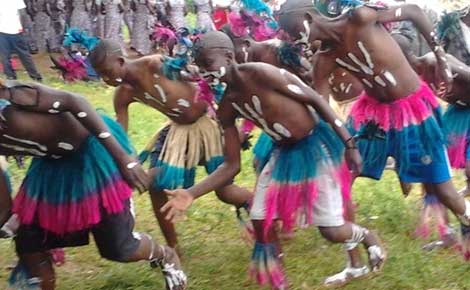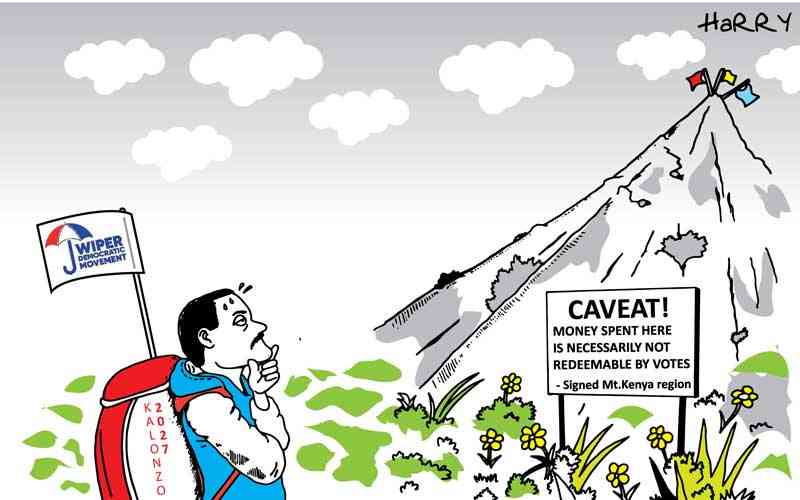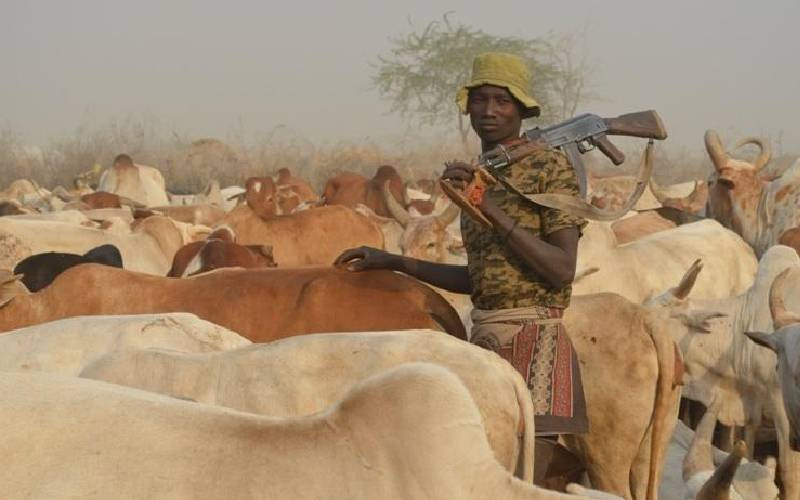As Kenya grapples with various challenges facing tourism sector, it is imperative to challenge the stake holder to put more emphasis by promoting talents in our schools through the Kenyan national music festivals for schools and colleges. Year in, year out, great talents go to waste by amassing trophy after trophy and just locking them up in the Principals’ trophy cabinets waiting for another year.
Culture is the Art, Literature, music and other intellectual expression of a particular society. (Oxford Advanced Learners’ Dictionary). Every community has a culture which is unique to its people.
Culture is the roof with which a person covers himself from the rains of foreign influences; A community which denies its culture is like a person running away from himself.
Thus society without culture is like a tree without roots.
With the rapid technological development, the internet world and the rural urban migration, the traditional pots are no more; the calabashes have all been broken into pieces. There is no more granaries, no more traditional cooking hearth (the three stones), the three legged stool has been replaced by a sofa set and glass tables in most houses.
The wall where the fly whisk, the Nyatiti, of the Luo, Obokano of the Kisii and the Ishiriri of the Luhya was hanging is now decked by ‘42’ inch plasma Television.
Instead of the traditional earthen-ware, grass and reed made plates; food is now being served in glass plates. The milk guard and the cooling water pot at one corner of the hut have been replaced by fridges.
Old grand Pa stopped smoking his traditional pipe long time ago than I can remember, he now holds Marlborough between his two fingers, they no longer assemble under the old orepe (fig) tree for Mbao-Ajua game and traditional brew of Busaa but all troop to Hitler’s Pub for Keg and ‘Kill me quick’ after which they are seen by their grandchildren exposing all their ‘Possession’ as they pee anywhere and everywhere and try to walk in a swagger like the young man who was born just the other day.
Grandparents no longer tell ogre stories, fables, no more riddles and tongue twisters by the fire side as the pot boils with the traditional delicacy of wild mushrooms or wild hog meat. The cows no longer come home with their neck bells and jingles alerting the home to prepare the cow-dung fires. The goat kids no longer jump up and down on the Thingira( old man’s hut) wall and the he goat has stopped rubbing himself on the wall and harassing the she goat. Do you now smell the sheep urine?
Children no longer roast stolen arrowroots, yams or maize. They no longer hunt the squirrel or rabbit or chase birds with the catapult. If anything they think Nile Perch is another weed in river Nile and Tilapia grows on air- instead today’s children are twittering away all night long in their mobile gadgets, a large percentage of which is pornography. When they take to the floor to move their body, you go down on your knees and ask Holy Mary to ask on your behalf for forgiveness for having seen such a nudity, such evil gestures which is the hall mark of today’s music scene.
Our young lads no longer make mud bulls and they no longer call each other using flutes and other wind instruments like their hand as we used to while driving the cows into the forest to graze.
There is no more moonlit village wrestling and dancing festivals. Our homes have been stone walled. Wigwe and Okara no longer sit by the receptions in the evening greeting passersby who cross their home compounds from the waterside market.
Bride parties trooping with all manner of traditional brews is no more instead, our daughters and sisters jump to bed with strangers even before you could let out the word dowry from your mouth. Death is no longer the bad reaper we use to curse; instead it is celebrated with long convoys of limousines and golden coffins to match.
Stay informed. Subscribe to our newsletter
The cat has made a truce with the rat and the two have formed a coalition in our houses. Our dogs no longer know the difference between the wild rabbit and their puppy. They no longer respond to the Simba, Sadam, Gadafi and Rhodesia names of yore, and they no longer eat the bones with chili in it, instead they have funny names like ‘baby Daisy ‘and feed on spaghetti ! They no longer scare the village naughty boy who comes by at the back of the Simba-the youth’s hut at night to steal our sisters for their night’s escapes in the bush. They no longer roll to bathe on dust but instead are shampooed at the pest’s swimming pool.
The partridges have stopped laughing in the bushes in the morning and evening, the bush bird longer wakes us up. Njogoo the Cock has got his head confused by the city bulbs. Rarely do you hear the mourning coo of ivui the wild dove with his sad tone on a hot sunny day. The weaver bird is no longer the quarrelsome noisemaker we knew it to be. Undhwe-the ‘messenger bird’ no longer copy our words or bring home messages of lost ones like it did before to Obong’o’s mother; murders and heinous crimes nowadays get difficult to solves because Undhwe is no more!
Any avenue to watch and listen to the sweet melodies of barefoot children young boys and girls in traditional regalia is a welcomed relief from the dreary life which is now the 21st century Homo sapiens’s daily activity.
The aesthetic value of traditional music cannot be gainsaid, more so the rich talent that abound in our schools and colleges; in fact slowly and slowly some of these rich cultures are creeping back into our lives. Just look at the modern African woman’s attire. While they mouth rejections of their cultures, their earrings are slowly recognizing the traditional attires and don’t we now crave for that cool Afro-fusion and the Ohangla beats that reminds us of the past and the Televisions have caught the fever if not then you have not been watching the wedding programs in Citizen TV, KTN and NTV !
Every year, the Kenya National Music executive committee organizes a music extravaganza for primary pupils, secondary, college and university students. Different schools, colleges and universities converge together to compete for trophy awards in various categories.
Trainers, teacher and the performers sweat for half a year starting with the zonal competition to the national level just for one coveted prize of all the prizes in the festivals: ‘the state concert.’ No one would want to remain behind for this is mostly a rare opportunity for pupils and students to step right into the heart of the country’s leadership. In as much as it gives students that much coveted opportunity to not only perform for the president but shake his hand and even take photos with him, it should not just end in state concerts: It will be of great value to promote such schools that excel in the Kenyan traditional dances and related styles to market the country by either sponsoring them in the event or also taking selected few to market the country abroad. The opposite is always confounding when you see the Kenya tourism board promote only poems related to tourism, leaving out traditional dances which should be the cornerstone of tourism industry in Kenya!
 The Standard Group Plc is a
multi-media organization with investments in media platforms spanning newspaper
print operations, television, radio broadcasting, digital and online services. The
Standard Group is recognized as a leading multi-media house in Kenya with a key
influence in matters of national and international interest.
The Standard Group Plc is a
multi-media organization with investments in media platforms spanning newspaper
print operations, television, radio broadcasting, digital and online services. The
Standard Group is recognized as a leading multi-media house in Kenya with a key
influence in matters of national and international interest.
 The Standard Group Plc is a
multi-media organization with investments in media platforms spanning newspaper
print operations, television, radio broadcasting, digital and online services. The
Standard Group is recognized as a leading multi-media house in Kenya with a key
influence in matters of national and international interest.
The Standard Group Plc is a
multi-media organization with investments in media platforms spanning newspaper
print operations, television, radio broadcasting, digital and online services. The
Standard Group is recognized as a leading multi-media house in Kenya with a key
influence in matters of national and international interest.










